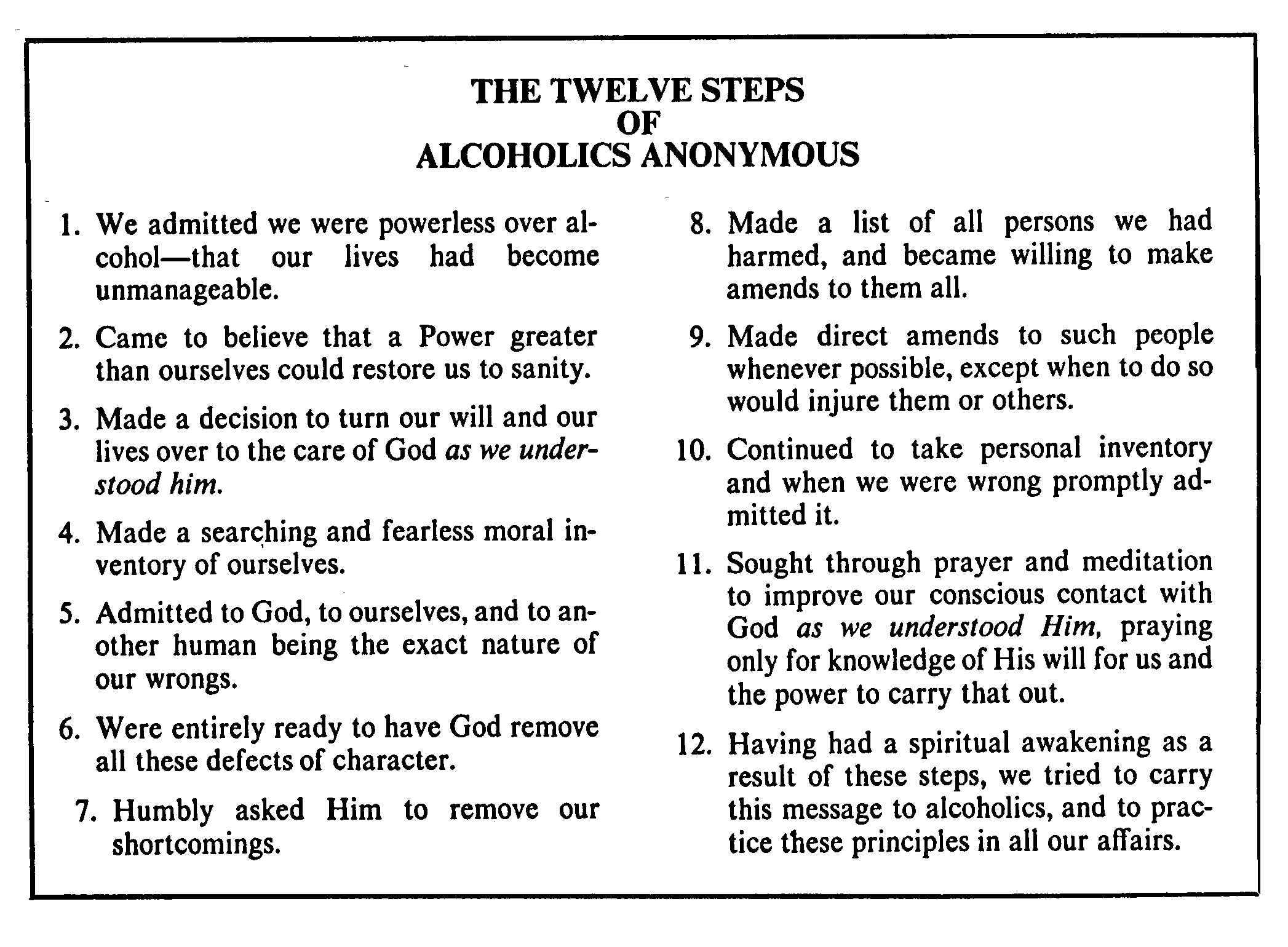By Steve K.
I’ve often heard it said in AA meetings “I don’t know how the Twelve Steps work, they just do.” I have never found that statement particularly helpful. Taken literally, the Steps suggest that we can recover from our illness by accepting it, by belief in God or a higher power, by taking moral inventory, making amends, practicing prayer and meditation, and by helping other alcoholics.
This literal understanding begs the question.. How does faith, taking a moral inventory, making amends, prayer, meditation, and helping others free sufferers of their addiction?
For my own recovery to really begin I needed to understand how the Twelve Steps could work in my life, in a way that made sense to me, and that was in line with my personal world view and values. In order to commit myself to the Steps I needed to fully believe in them as a method of deep transformation. So, some years ago now, I made the conscious decision to study the Twelve Step program of Alcoholics Anonymous (AA) in depth, starting with the book ‘Not-God, A History of Alcoholics Anonymous’, by Ernest Kurtz. This book is a detailed history and study of the AA fellowship and its Twelve Step program. The ‘Not-God’ in the title is hyphenated to symbolise the principle of humility leading to connection… by realising that I am not God, that I am limited, I can connect to a power greater than myself… I can surrender to help.
After reading this book, which gave me a better understanding of the principles underpinning the 12 Steps and Traditions, I then looked at the various approaches to the program of recovery… starting from the traditional viewpoint, including the books ‘Alcoholics Anonymous’ (aka Big Book) and the ‘Twelve Steps and Twelve Traditions’, to more secular accounts, such as Marya Hornbacher’s ‘Waiting, A Non-Believer’s Higher Power‘.
By combining my understanding of these various approaches, with my knowledge of humanistic psychology and moral philosophy, I was able to interpret the original Twelve Steps in a way that was really meaningful to me. I became able to see how the Steps could lead to deep changes within me and so became fully willing to believe in them, and to try and practice them wholeheartedly in my life. I could also see how participation in Twelve Step meetings would help and enable me to practice the program, and that both “fellowship and program” work by integration… that they are reciprocal in nature.
(The Original Twelve Steps of Alcoholics Anonymous)

By breaking down the Steps I discovered that they contained and encouraged the practice of various moral principles or virtues. Humility, honesty, courage, acceptance, compassion, forgiveness, and perseverance to name a few. These are embedded within the Steps via practices such as self-examination, making amends, prayer and meditation, and service to others. These principles and practices are well established pathways towards behavioural change, emotional well-being, spiritual growth and character development.
Practicing the Twelve Steps has helped me to manage my instinctual needs… identified within Step Four of AA’s literature (and also ‘Maslow’s Hierarchy of Needs’) as material, emotional, social and sexual in nature… and my emotional difficulties in a healthy and more effective manner. The Steps counter-act my dysfunctional, fear-based, excessive, and defensive behaviours previously adopted in an attempt to protect myself and meet my unmet instinctual and emotional needs.
I have found that by practicing the Steps and participation in fellowship, I’ve been able to uncover my dysfunctional ways of being, becoming more painfully aware of the harm they cause myself and others. This process has gradually made me more willing to let go of them and to adopt more helpful attitudes and behaviours.
The principles and practices contained within and encouraged by the Steps have gradually led me to become less self-centred (certainly a by-product of addiction, if not a cause) and more connected in a harmonious way with myself and other people. They’ve improved my relationships, my quality of life, and my mental outlook in general. However, this is a slow and ongoing process that I need to continue working towards. I’m by no means perfect and can still suffer from negative and insecure behaviours and attitudes. As it says within AA literature, I seek “progress, not perfection” on a daily basis.

I have come to believe that ethical behaviour is a vital component of my recovery from addiction. The Steps and AA fellowship both promote ethical behaviour. It is well known, and common sense, that ethical behaviour promotes inner well-being and serenity, better relationships, less harmful consequences, and more joy in life. I am therefore much less likely to want to escape by drinking or using other drugs. Inner peace, created by ethical behaviour, is also a foundation of spiritual growth. Through the practice of the Steps, and the principles they contain, I have increasingly sought after spiritual growth as part of my self-development and the process of change.
Unethical and selfish behaviour creates inner disturbance, anxiety, and resentments, a dis-ease with self, which can lead me to relapse. In general, unethical behaviour also brings us into conflict with others, which often results in harmful consequences for ourselves and them. Behaviour which is dishonest, harmful, or involves the exploitation of others, is fundamentally self-centred and a barrier to both self and spiritual development.


